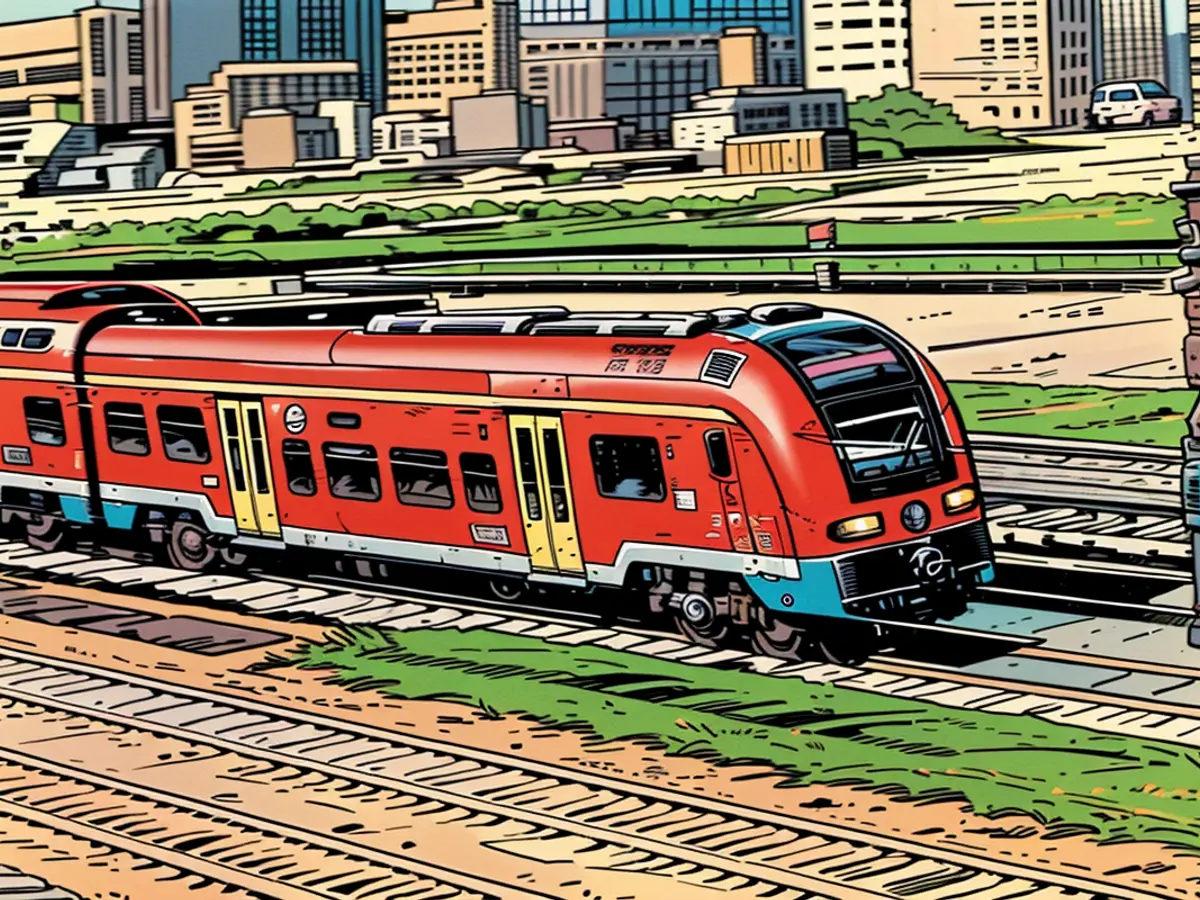Specialists advocate for adaptable ticket costs in Germany.
The Germany ticket is more preferred by commuters than by federal states, and politics has been voicing opinions about potential price hikes since its debut. Experts recommend maintaining the annual subscription's affordability, introducing social and family pricing, and putting an end to the ongoing cost debate.
According to transport specialists from "Alliance pro Rail" and the Greens, a more adaptive pricing approach is essential to secure the Germany ticket long term. Stefan Gelbhaar, the Green faction's transport policy spokesperson, argued, "Loyal customers should be rewarded and kept." Gelbhaar advocates for keeping the yearly subscription price of 49 euros steady, stating, "It adds extra value to annual subscriptions." This move would also improve efficiency for transportation companies by reducing back-and-forth interaction with numerous single monthly subscriptions. Additionally, an increase in job tickets and a family offer could further appeal to the Germany ticket.
Dirk Flege, managing director of "Alliance pro Schiene," also highlighted, "Affordable annual subscriptions could be incentivized by offering them at a lower rate than cancellable monthly Germany tickets. A social ticket for those who cannot afford the regular price is also necessary." He also criticized the endless price discussions, remarking, "The transport ministers' conference needs to send the signal that the Germany ticket is permanent at a reliable price."
The transport ministers convene on Monday
On Monday, transport ministers from the federal states will attend a special conference in Düsseldorf to discuss the Germany ticket for the upcoming year. Available nationwide for 49 euros since its introduction in May 2023, the ticket has been sold over 13 million times. However, funding from both federal and state governments is required, with each contributing 1.5 billion euros annually.
Recent proposals from individual federal states involve significant price hikes for the period beginning January 1, 2025. For instance, Bavaria suggests a monthly price of at least 64 euros in their document sent to the round of state transport ministers. This would represent an almost 30% increase from the current 49 euro price. Market analysts predict mass cancellations if such hikes occur, which could jeopardize cost coverage.
In light of the forthcoming discussions, it would be beneficial to consider the impact of local transport on commuters. Affordable annual subscriptions for the Germany ticket could encourage the use of local transport, making it more accessible for a wider population.
At the upcoming conference, it's crucial to address the proposed price hikes by individual federal states, such as Bavaria's suggestion of a monthly price of 64 euros, which could lead to significant cancellations and affect the ticket's cost coverage.








